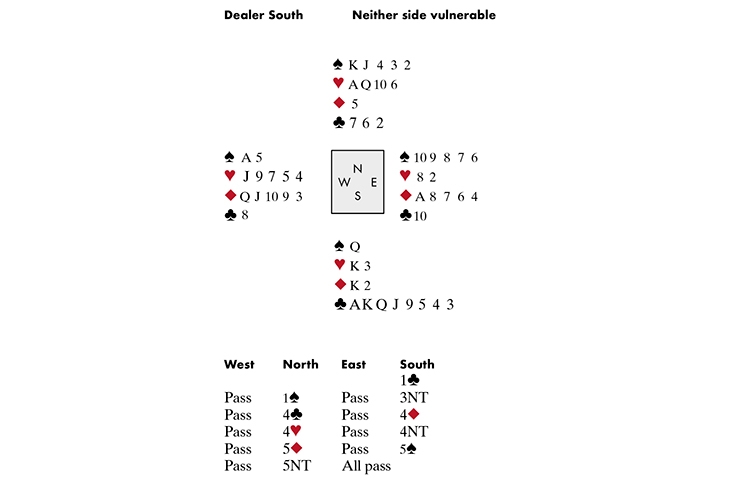There are some experts — like my friend Sally Brock — who think Blackwood is an overrated convention, and that slams can be bid just as well without wheeling out 4NT to ask for aces. That’s often true. At the Portland Club, Blackwood isn’t even allowed, and players don’t seem to have much trouble bidding slams.
However, I’m firmly in the camp that believes Blackwood is indispensable in some auctions; there’s no other way of finding out whether partner holds the precise cards you need. It does have to be used with care though. One of the dangers of Blackwood is that it can take you too high: you check for aces, find you’re missing two and — whoops — are forced to bid trumps at the six level. There is an emergency break for this situation, and here’s how it works (see diagram).
This hand comes from a mixed pairs tournament I played in with Espen Erichsen some time ago. I opened a club; Espen responded 1♠ and I rebid 3NT, promising a strong hand with long solid clubs. Espen’s 4♣ was a slam-try. I cue-bid 4◆, he cue-bid 4♥, and now I bid Roman Key Card Blackwood. Disappointingly, 5◆ showed just one ace. I needed to stop at the 5-level, but how? Playing Key Card, ‘step one’ — 5♥ — asks for the trump queen; 5NT asks for kings. 5♠, however, has no meaning —and is therefore used to say: we can’t be in slam, please bid 5NT. And that was how we came screeching to a halt in a making spot.






Comments